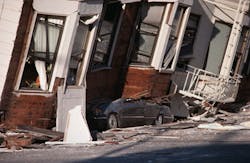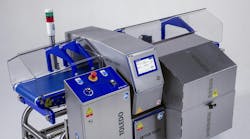Findings from recent research that linked hydraulic fracturing to an increased number and strength of earthquakes have sparked a new wave of debate relating to whether the economic benefits of fracking really outweigh the potential risks it poses to the environment and to public health.
According to the Northeast Marcellus Initiative, an industry organization founded in 2011 that describes itself as "the eyes and ears of responsible resource development" in northeastern Pennsylvania and southern New York, attempts to directly link fracking with earthquakes are nothing but "a willful attempt to misinform the public."
Quoted by North Central PA News, the Northeast Marcellus Initiative claimed that the results of the study by Columbia University caused understandable concern among members of the public, but the reality was very different. Fracking as a method for developing natural gas resources has been implemented in California for about 50 years and over this period not a single earthquake linked to hydraulic fracturing has been recorded in the state.
John Parrish, California's state geologist, has backed this statement by adding that on the many occasions when fracking has been linked to quakes, their magnitude has invariably been detected as below magnitude 1, suggesting that the earthquake could not be felt, except under very specific circumstances.
This view has been shared by Mark Zoback, Stanford University geophysicist and advisor to the Obama administration, who stated in a report he issued last year that while it was true that microseismic events occurred during fracking operations, those were so small that they affected a very restricted volume of rock. He noted that the energy released in such quakes was comparable to the amount of energy of "a gallon of milk falling off a kitchen counter."
RELATED: Study links large overseas earthquakes to tremors at US fracking sites
According to the National Research Council, part of the National Academies of Science, the process of fracking a well as commonly implemented by oil and gas companies to recover shale gas does not pose any significant risks of seismic events which can be felt. It added that only a small part of fracking fluid injection and extraction activities among the hundreds of thousands of development sites across the country have resulted in seismic events at levels that members of the public could feel.
The Northeast Marcellus Initiative claimed that further scientific proof that the alarmist conclusions of Columbia University should not be deemed conclusive came from a study of hydraulic fracturing in the Inglewood Oilfield in Los Angeles several months ago. The report pointed out that an assessment of groundwater quality in fracking wells before and after drilling operations showed that there was no impact resulting from hydraulic fracturing. In fact, the study found that all fractures were separated from the associated base of fresh water by at least 7,700 feet. In addition, repeated measurements of vibration and seismicity revealed that high-volume hydraulic fracturing in the area "had no detectable effects on vibration and did not induce seismicity," the report stated.



